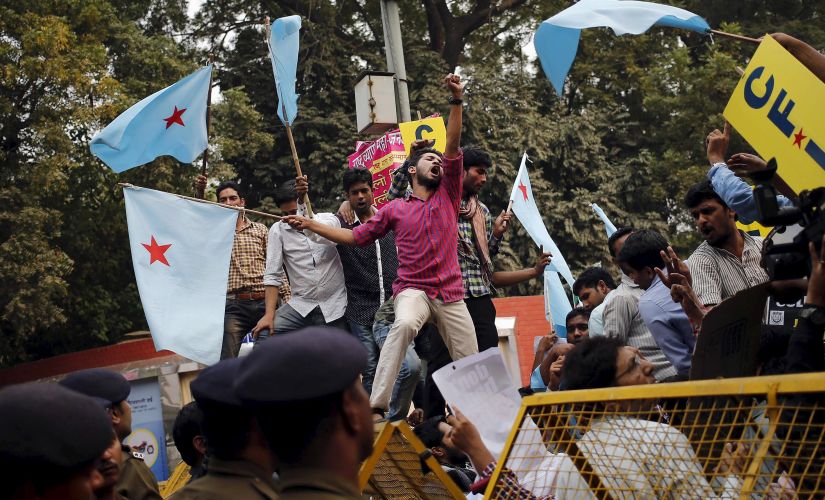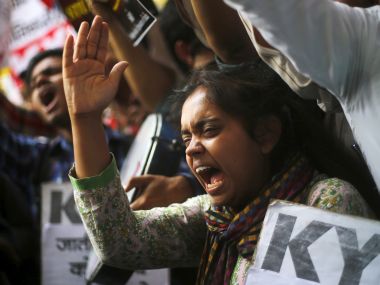The Union Ministry of Human Resource Development (HRD), in a recent circular, has sought to “connect” social media accounts of students of higher education institutes to the ministry. While the stated objective of the move is to publicise “positive stories” of the institutes, lawyers and academicians have expressed serious concerns over possible profiling of students, surveillance and the possibility of more social media users choosing anonymity. What the circular states The circular asks institutes to designate a faculty/non-faculty member as a “social media champion” who is expected to communicate to other institutes and the HRD ministry the good work done by the institute and its students from time to time. The “social media champion” is also expected to open (if not already existing) and operate accounts of the institution on Twitter, Facebook and Instagram. CNN-News18 has quoted a senior ministry official as saying that taking part in this process is “voluntary” and that it is not incumbent on students to share their social media details with the institute. [caption id=“attachment_6619501” align=“alignnone” width=“825”] Representational image. PTI[/caption] However, the circular raises a number of questions about its implementation. For starters, it is unclear as to how precisely social media accounts of individuals are to be “connected” to the ministry and the institution. Secondly, if the intention of the ministry is to publicise “positive stories” of the institution, it is not clear why it needs access to students’ social media accounts. It is also a matter of concern as to whether the institute can put pressure on students to post “positive stories” on their social media accounts. Concerns over surveillance, anonymity
R Ramakumar, professor at the Tata Institute of Social Sciences (TISS), says, “I do not understand what the motive behind this order is. What is the benefit that the State hopes to get by knowing students’ social media accounts? The real reason appears to be surveillance, and an attempt to identify the ideologies of individuals. The order also reflects a strong belief held by the State that it has the ability to judge which opinion of which student is correct or appropriate.”
Ramakumar adds, “An unintended consequence of such an order could be to push more people towards anonymity on social media. I am not against anonymity per se, but that is only if the people concerned want to be anonymous. However, in such a situation, it must be said that the accountability expected of a social media account where the user has a clear identity will be lost. On the whole, anonymous accounts have relatively lesser accountability.” [caption id=“attachment_3378408” align=“alignnone” width=“825”] A file photo of a student at JNU protesting during the Kanhaiyya Kumar row in 2017, Reuters[/caption] Speaking on whether such a circular violates the right to privacy, Joshua Abhay Patnigere, a Mumbai-based civil litigation counsel, says, “In the landmark case of Justice KS Puttaswamy (Retd) vs Union of India (that is, the judgment in the right to privacy case) Justice SK Kaul has observed that the growth of technology has created new instruments for the possible invasion of privacy by the State including through surveillance, profiling and data collection and processing, adding that while surveillance is not new, technology has permitted surveillance in ways that are unimaginable. He, however, notes that the security environment not only in India but the world at large makes the safety of persons and the State a matter to be balanced against the right to privacy judgment. In the present instance involving linking of social media accounts, it is imperative to remember that posting vital information on a social network and then claiming privacy, should that be the case, will not work since the person has, of his or her own volition, chosen to post such a thing.” Silencing dissent? However, another lawyer, requesting anonymity, expressed concern over the implications of the move, saying, “This is most likely going to result in profiling of students based on ideology and religion, and could possibly be used as a means to silence dissent. The courts will see a rise in the number of cases that have to be tried based on information that will eventually be found to have originated from the social networks.” [caption id=“attachment_3378414” align=“alignnone” width=“825”]
 Representational image. Reuters[/caption] The lawyer added, “There is a possibility that this is being done to flout the Aadhaar judgment since it was clearly said that no linking of Aadhaar was necessary to be given any government subsidies or schemes. Possibly, as the State cannot access some aspects of personal data due to the Aadhaar judgment, it may attempt to get access to the same information through people’s Twitter or Instagram accounts. This would appear to be the start of a police state, and several pertinent questions arise from the circular. For instance, who will control the data, and where will it be stored? Will a court order be required to access it?”
Representational image. Reuters[/caption] The lawyer added, “There is a possibility that this is being done to flout the Aadhaar judgment since it was clearly said that no linking of Aadhaar was necessary to be given any government subsidies or schemes. Possibly, as the State cannot access some aspects of personal data due to the Aadhaar judgment, it may attempt to get access to the same information through people’s Twitter or Instagram accounts. This would appear to be the start of a police state, and several pertinent questions arise from the circular. For instance, who will control the data, and where will it be stored? Will a court order be required to access it?”
The HRD ministry’s circular also comes as a concern when seen in the context of several other recent actions of the central government. In December last year, a decision by the Ministry of Home Affairs (MHA) to authorise ten central agencies to access any computer in matters of national importance had raised alarm bells. The move had prompted Opposition politicians to allege that the Centre was converting India into a “police state” and to remark that “Goerge Orwell’s Big Brother is here”.
Further, in January 2019, there were reports that the Intelligence Bureau (IB) has sent a note to the HRD ministry red-flagging some universities as some stakeholders in them were critical of the central government. Actions of some state governments with respect to universities also point to the same trend. A case in point is a recent bill introduced by the Uttar Pradesh government — titled Uttar Pradesh Private Universities Bill, 2019 — which requires promoters of private universities to give an undertaking that the institution will not be involved in or permit anyone to “cause or promote anti-national activities” on the campus.


)

)
)
)
)
)
)
)
)



